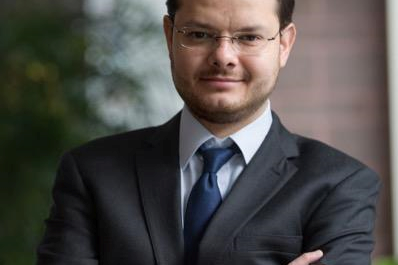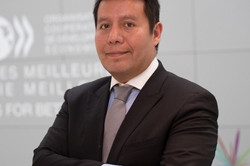
Juan Carlos Solano Lucas. Professor at the University of Murcia
We've spent years listening to the media and from various international and national agencies, that the state is inefficient, that it is more efficient that private companies manage public resources, that the Social State is not sustainable, entrepreneurs risk much, it is not feasible to maintain the welfare state, it is not even profitable, etc...
Recently the President of the Spanish Employers Association, Juan Rosell, at a conference in AECOC (Spanish Association of Commercial Coding) said that "if health and education were managed by entrepreneurs it would make things better." There is no doubt that Mr. Rosell was speaking to converts in a public that is convinced of the great evils of the public sector and that encourages you to be more direct, more talkative and more daring. I think that today few can doubt that private enterprise is the best economic institution able to draw the greatest possible economic benefit from the available resources, but not necessarily the greatest social benefit, which ultimately is the one that is in favour of all or much of society. Private management of the public can get a high monetary return but that does not guarantee that those who have fewer opportunities can access the minimum level of services that society must provide its citizens.
Beyond corporate or union ideologies, economic interests of the business class or subsistence needs of the working class, the reality is that social inequality in Spain is chronic. Sociologists, economists, journalists and even we have been putting different names, at the time of the context, fashions or the interests of one or the other. I say it is chronic because neither during the Belle Epoque, for which we understood the real estate boom, did poverty rates fall.
Between 2004 and 2013, the rate of poverty risk for the Spanish population (the percentage of people who are below 60% of median disposable income per consumption unit) has been around 20% (Eurostat). The crisis has not raised this rate, and we might even venture to say that has not been higher because social transfers, especially in the revaluation of minimum pensions, could have been a palliative against worsening living conditions. While overall state social transfers in the Spanish case have not meant a substantial change in the risk of poverty.
The differences are based on the social origin
The social system of which we are endowed not long ago had its genesis in the claim that all citizens should have access to education and the same equality of opportunity, and that only individual capacities were the determinants of successes and failures in each subject. The social reality is more complex, regardless of whether we hypothetically endow ourselves with a more just and equitable education system, social origin is a clear determinant of success or failure at school, and later on, the type of occupation that we will have, because educational achievements are an ally for being rewarded when it comes to getting a job.
After Coleman, in 1966 in the form of a report that bears his name, requested by the President and Congress of the United States claimed that differences in educational outcomes in schools in this country did not depend on the amount of funds assigned to centres, nor on racial differences between blacks and whites, but rather on the social background of students; the empirical evidence in this field have been numerous. In other words, Coleman and many other social scientists have to say that in homogeneous schools whose students come from middle, wealthy or upper classes, the results will be better in these than in those heterogeneous centres, from the perspective of class. And he explained as follows: "The handicap is not only black student who must deal with their own socio-economic problems of their home, but that they are surrounded by people with similar disadvantages, that rather than encourage better academic performance makes them more pessimistic about their future." In short, with the aim of alleviating the differences due to birth, we need to orient the rules towards making the best use of our society's human capital.
However, I want to focus on educational inequality and its consequences for the future of Spanish society, especially in a context of economic globalisation and fierce competition, not only for companies, but also for workers. Moreover, I want especially to focus on the opportunities for young Spaniards.
In the long run, we will be on the periphery of knowledge
Spain is a strange country within the OECD as regards the structure of the education level of young people. We can say that the Spanish education and work model proposes a polarized structure of the education level of its citizens. Spain is the only OECD country with high rates of both young people with University education and youth with low educational attainment. In Spain, 41.1% of young people between 25 and 34 years have attained tertiary education and 34.9% of individuals in this age group do not have an upper secondary qualification.
Recently, the Director of Innovation and Progress Indicators OECD, Mr. Dirk Van Damme in his foreword "Education at a Glance: Interim Report 2015" called on governments to orient their educational investment towards areas of added value. He claimed that the only way towards sustainable improvement of economic growth and social progress is that it must go hand in hand with the expansion of its tertiary education systems, while at the same time working on reducing the rate of young people with low educational levels.
Someone might remind us that Spanish society is expelling graduates from the Spanish labour market to other neighbouring countries, or that the unemployment rate of young Spaniards is the highest in the EU, and also in young people with University education. Moreover, they every right in the world, but the reality of the working conditions of young people without studies is worse. Their situation is even more precarious and insecure and they have fewer opportunities for the future, to the extent that the new educational model aims to promote vocational studies rather than University education against the suggestions of experts and the global drifting of knowledge production. If these proposals are implemented, in the long run Spanish society will be at the periphery of growth. Moreover, while young people with University education suffer from precarious employment, at least they still have a structure of opportunity that the young uneducated do not have and wish they had.
Young Spanish graduates have a hard time, but for the great mass of uneducated youth, it is going to be much worse. Ignore the importance of this group, and leaving them without education as a protection against the risks of unemployment, job insecurity and social exclusion could lead to a loss of progress in Spain thanks to the high educational return on investment so far of everyone with University education. Precariousness, temporality, training contracts and internships, part-time contracts are making the Spanish labour market chronic. They are becoming an unofficial standard occurrence in the access to employment and the prolonged precariousness thereof; and the economic crisis has not helped. An important example of this very precarious situation is to be found in the unemployment rate of this group, which has ranged from 34% in 2005 and 60.3% in 2012 (EPA fourth quarters). Or similarly, how more than half of these young people are employed in the construction trade and catering; or how most work in the secondary segment characterized by offering unstable employment, low status jobs, low pay, poor working conditions and little chance of promotion, exacerbated by the inability to find public alternatives to improve their formal qualifications.









